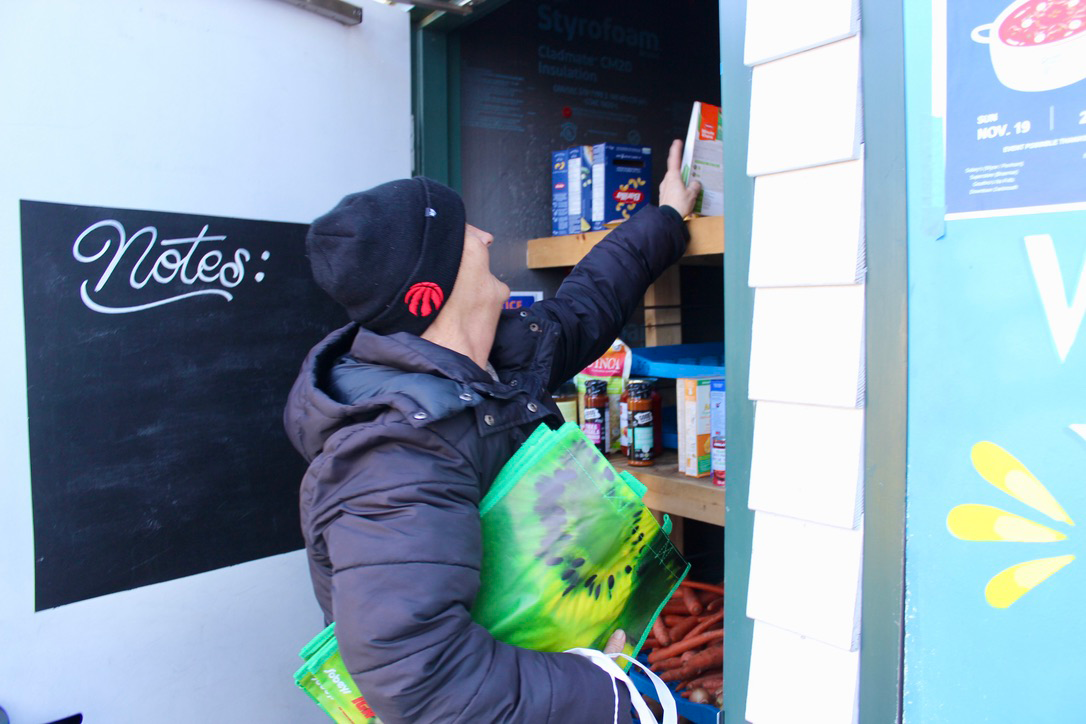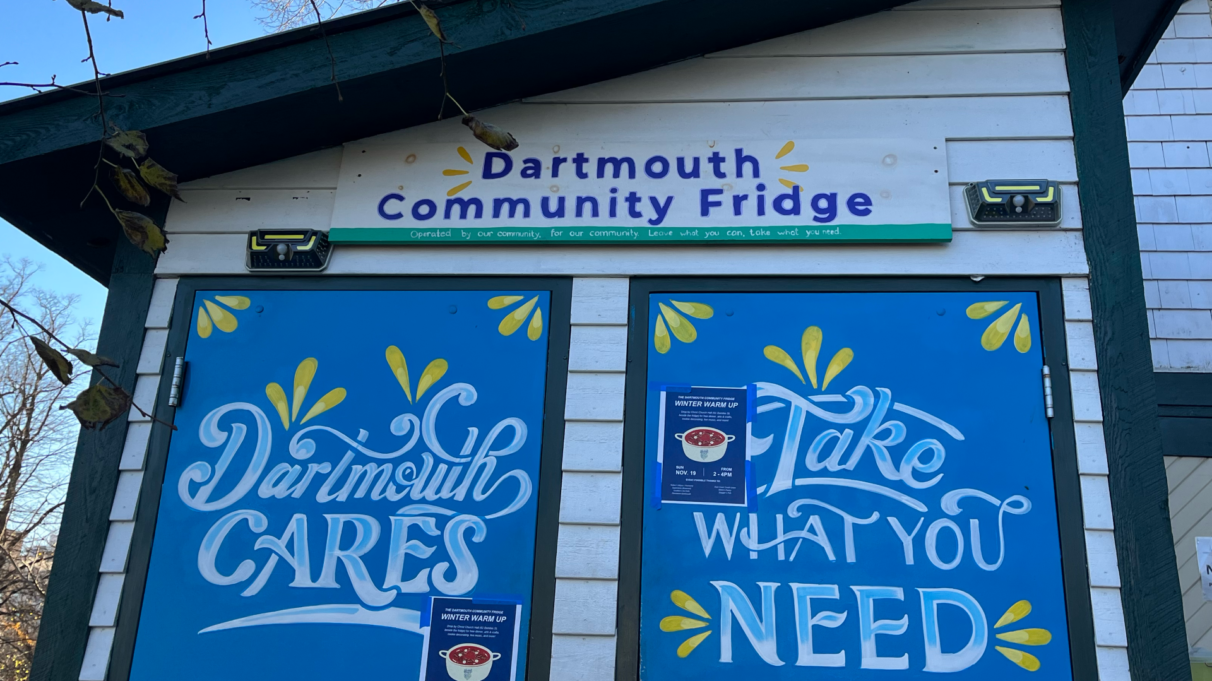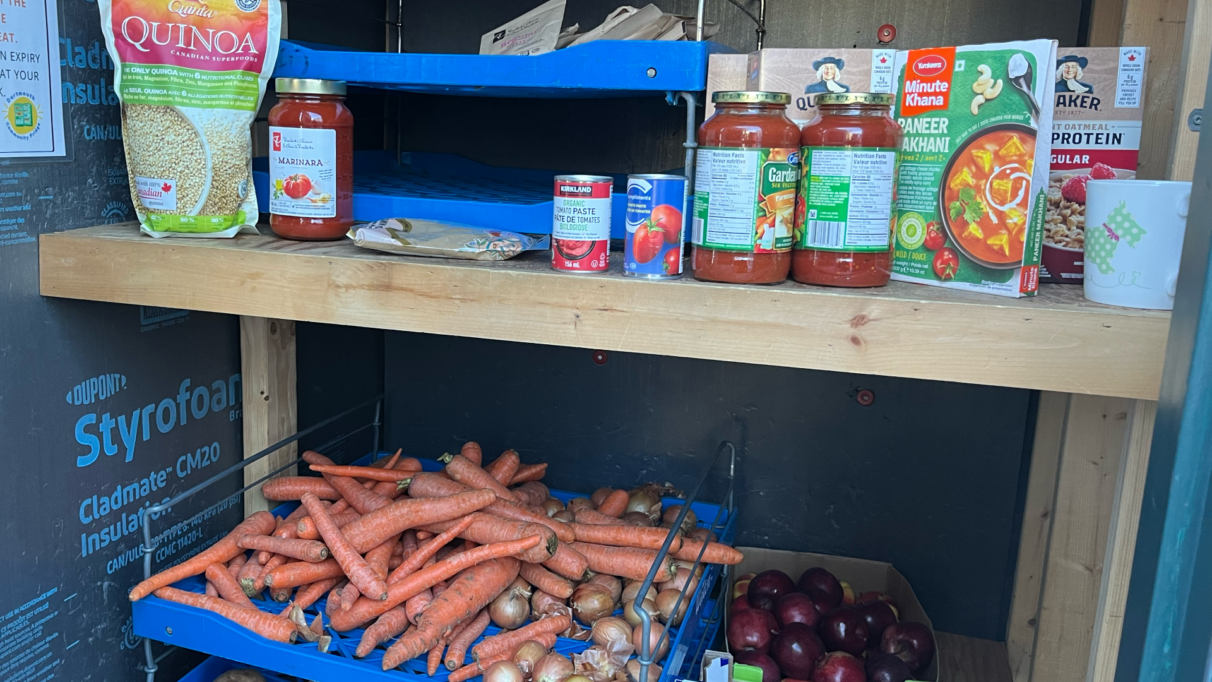‘That’s how I survive’: Dartmouth food bank serves growing demand
Community fridge volunteers raise more than $10,000

caption
Diane Kennedy reaches for food at the Dartmouth Community Fridge.Diane Kennedy takes the ferry from Halifax to the Dartmouth Community Fridge a few blocks from the Alderney ferry terminal every second day. She says she and her son would starve if it wasn’t for the fridge.
“People are paying more rent and the cheques aren’t going up. I got $932 a month. My rent is $750… how is a person surviving? Coming over here. That’s how I survive,” Kennedy said.
The Dartmouth Community Fridge is a one-storey shed with a pantry and fridge located in the parking lot of the Christ Church on Dundas Street serving as a food bank. It opened in May 2022 and provides people with a space to access or donate food. It can be used by anyone at any time without having to sign up.

caption
The Dartmouth Community Fridge is located in a church parking lot on Dundas Street.On Sunday afternoon, food bank volunteers partnered with the church to host a meal for community members that served cake, macaroni and cheese, chili and beverages. After attending the meal, some donated food, while dozens lined up outside the food bank.
According to volunteer Elizabeth O’Hanley, a lineup of people outside of the building is a common occurrence. It costs $165 a day to fill the community fridge and O’Hanley said “what we spend is based on what we have. So, it’s not necessarily based on the need, because the need is very high.”
She said volunteers stock the pantry and fridge every day and most of the food they leave is gone the next day.
The fridge and pantry is designed to eliminate barriers that people encounter when accessing traditional food banks.

caption
Produce and packaged food line the shelves inside the food pantry at the Dartmouth Community Fridge.“They may get their food bank box but there may not be enough in that for their whole family or there might not be things that they can eat due to allergies,” said O’Hanley.
Gail Rodgers is a longtime friend of Kennedy and they often visit the community fridge together. Rodgers said visiting a food bank only “once a month isn’t enough for some people with big families.”
The community fridge volunteers are working to raise money to feed people for the next two months.
They are hosting a fundraiser called “10K in 10 Days” that aims to raise $10,000 in 10 days to fill the community fridge. With still one day left to spare, they surpassed their goal and raised $11,863.
O’Hanley said she volunteers because “it’s a simple way that I can provide food directly to someone.”
According to Statistics Canada, the increased cost of living has caused the number of Canadian families experiencing food insecurity to rise from 16 per cent in 2021 to 18 per cent in 2022. Most of these families have incomes above the poverty line. The study also identified the groups most vulnerable to food insecurity as single-mothers, and people who are racialized or Indigenous.
“Food is a human right. Healthy food is a human right, and we are denying people that,” said Sara Kirk, a health promotion researcher at Dalhousie University.
Kirk said relying on charities to feed people is a “band-aid” solution. “We have to be thinking about ways that we can put pressure on governments to be doing the right thing.”
The “right thing,” Kirk said, is providing people with a guaranteed income such as raising the provincial minimum wage and provincial income assistance.
She calls food insecurity and poverty a “political choice.”
“We know that if we were to give people more money, that would reduce food insecurity, but that’s unpalatable to governments,” she said.
Amid increasing costs of living, the province announced in its most recent budget that it had left income assistance rates unchanged.
“People are starving. There’s people out in those streets living in tents … there should be not one,” said Kennedy.
Correction:
About the author
Hope Edmond
Hope Edmond is a master's of journalism student from Enfield, Nova Scotia. She enjoys sharing the stories of others.
